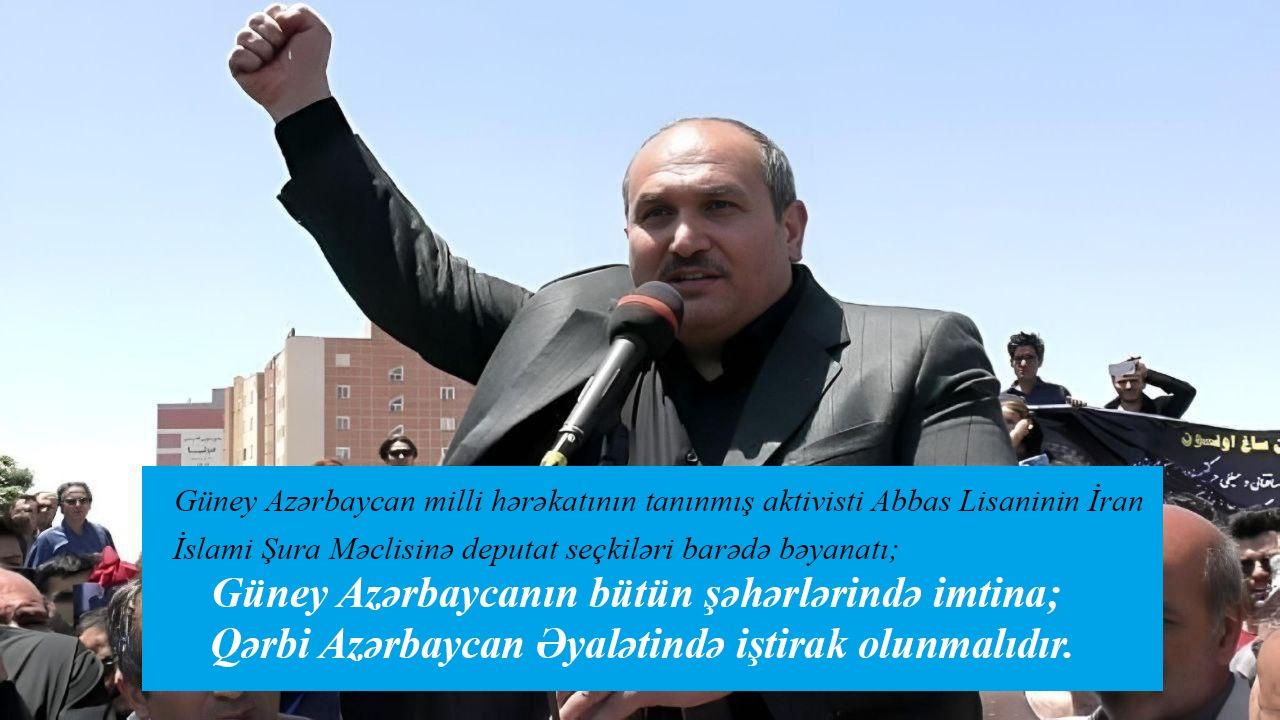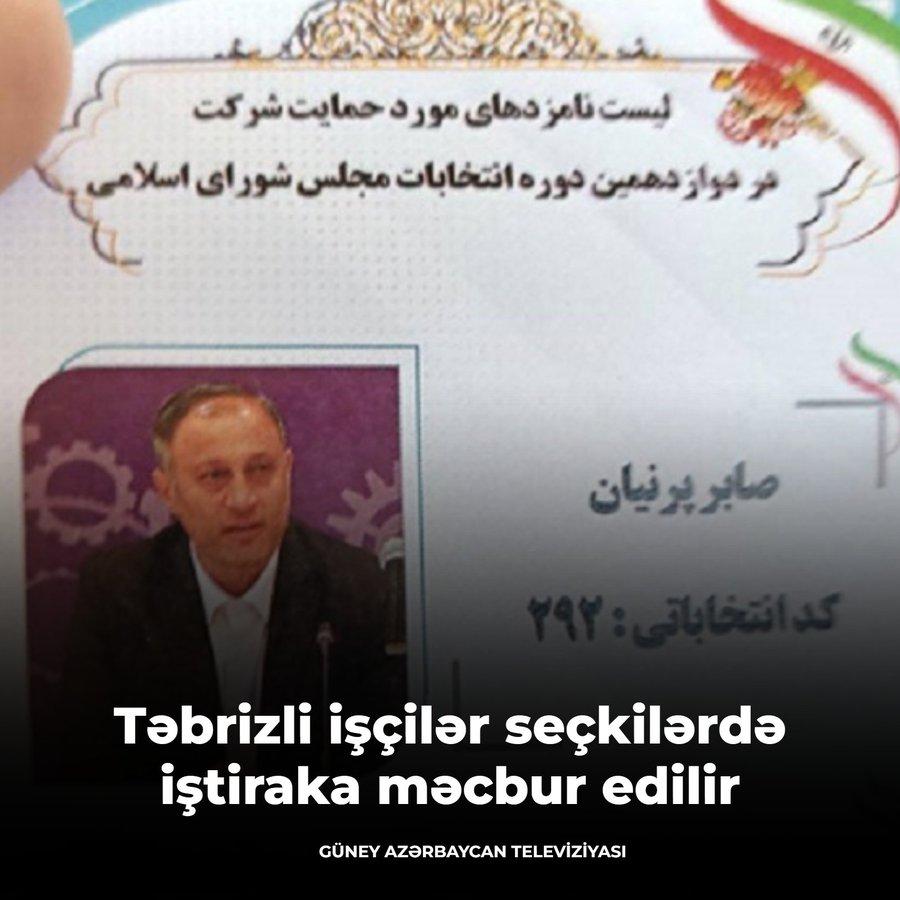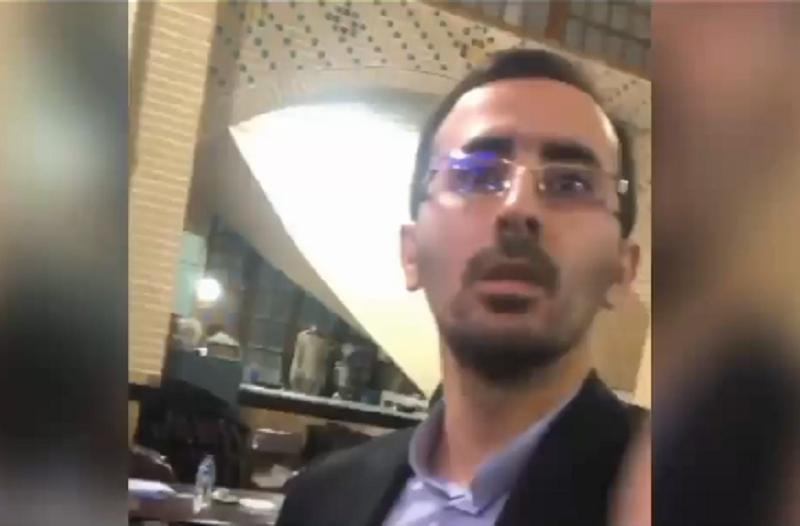Lowest voter turnout in Iran's parliamentary polls stuns ruling regime Azerbaijanis opposing Kurds' land claims in Iran
Iran’s parliamentary and the Assembly of Experts elections saw a historic decline in voter turnout on March 1, disheartening the regime’s 45-year-long history. This occurred despite extended voting hours, and voter turnout remained below the already record-low levels fixed in the 2020 elections and sparked rumors that voters purposefully abstained from voting as a form of protest against the regime.
The polls in Iran with official reporting of a nationwide turnout of only 40.6% was the lowest in the theocratic regime’s history. After 10 hours of voting, turnout was nearly 27%, dropping even further to 12% in Tehran after eight hours on the ballot day. In a bid to boost participation, polling hours were extended by two hours, but this failed to significantly increase voter turnout.
The theocratic government anticipated that the final turnout would exceed the 42.5% recorded during the 2020 parliamentary polls, yet it fell short of the mark. The total number of voters was reported to be 24,861,542, following a last-minute increase in voting due to extended polling hours.
The Iranian government had placed significant importance on surpassing the 2020 turnout, which was historically low, to demonstrate a strong level of political involvement. This was seen as a way to counter claims that the regime lacks legitimacy or is incapable of meeting the Iranian people's basic needs for economic advancement and personal freedoms.
As of March 4, with the official tally of votes almost complete, 245 out of 290 parliament members were reported elected. The vote count for the Assembly of Experts, a leadership watchdog, has been finalized in 30 out of 31 constituencies, with 77 out of 88 members named.
In the meantime, the media keeps covering and analyzing the voting, with hardline and pro-regime outlets, declaring the Iranian people as the true winners and Iran's enemies as the losers. On the other hand, reformist outlets described the absence of 36m eligible voters as a silent protest. On social media, pro-establishment users celebrated the election as a great victory for the Iranian nation and highlighted that 25m voters cast their ballots.
The lowest turnout was registered at a time when Supreme Leader Ali Khamenei described 40 percent voter turnout in foreign countries as a shame.
Why did the influential activist urge a boycott?
An influential activist urged for a boycott of the upcoming parliamentary elections in Southern Azerbaijan.

Abbas Lisani, a prominent figure in the Southern Azerbaijan national movement, released a statement on February 29 regarding the March 1 elections to the Islamic Majlis, calling upon the provinces and cities of Southern Azerbaijan, excluding West Azerbaijan Province, to abstain from participating in the elections.
Lisani argued that the lack of a democratic government in place justifies the decision to boycott the elections. He highlighted the absence of fundamental rights such as freedom of speech, assembly, and media freedom under the current regime and condemned the Iranian government for its violent suppression of protests in recent years, leading to a loss of legitimacy.
The activist expressed concerns about the Iranian regime's efforts to alter the ethnic composition of West Azerbaijan Province by resettling Kurds in the region. He criticized the settlers for making land claims and attaining positions of power with government support. Lisani urged Azerbaijani Turks to participate in the elections to support their candidates and counter the influence of Kurdish candidates nominated in West Azerbaijan.
Lisani called on Southern Azerbaijanis to rally behind Azerbaijani Turk candidates to thwart attempts to claim West Azerbaijan Province as Kurdish territory. He emphasized the importance of uniting to prevent the Iranian authorities and Kurdish groups from advancing their agendas. Lisani endorsed the parliamentary candidates put forth by the Azerbaijani national movement's Voice of Unity in Urmia (Orumiyeh), stressing the need to support candidates of Turkic descent.
In conclusion, Lisani emphasized the importance of supporting Azerbaijani Turkic candidates in the upcoming elections, regardless of their political affiliations. He urged all Azerbaijani nationals and activists to mobilize and ensure the success of their candidates in West Azerbaijan Province to safeguard the region from external claims.
Frustration with the regime, administrative pressure in polls
Along with a low voter turnout in various parts of Iran, Azerbaijani activists unhappy with the Tehran government's policies vis-à-vis ethnicities called for a boycott of the elections in regions heavily populated by fellow citizens, except West Azerbaijan.
Reports on the voting day revealed a notable voter turnout in the parliamentary and Assembly of Experts elections in several cities of West Azerbaijan Province. Gunaz.tv reported that the high participation was attributed to the transportation of voters from other regions to support Kurdish candidates. Voters were bussed in groups to polling stations in Urmia (Orumiyeh), Sulduz, and other cities.
Posts from local social media activists indicated that Kurdish voters were transported to Urmia (Orumiyeh) and Sulduz from Bukan, Soyugbulag, Ushnu, and other cities within the province and the move was made to prevent Turkic (Azerbaijani) candidates from Urmia (Orumiyeh) and Sulduz from securing seats in the parliament, and instead, ensure victory for Kurdish-nominated candidates.
Similarly, workers from Tabriz’s Advin Plastic plant were also reportedly pressured to participate in the vote. Employees of the Advin Plastik plant shared social media posts to this end on social media. They claimed that the management of the plant threatened employees to vote for Alirza Munadi Sefidan and Nasir Parniyan from Tabriz.

Journalist jailed for reporting accurate poll figures
Amid reports of a low turnout, reports emerged of a journalist being attacked and detained for allegedly exaggerating voter participation. Journalist Javad Aghajannijad from Tabriz was interviewing a local official about the number of ballots cast at a polling station when discrepancies were revealed and the official said that only 505 ballots had been used, compared to 1,300 in the previous election.
This discrepancy led to the journalist being taken into custody by security officers. This figure is yet another indication of low voter turnout.
Analysis by Mohammad Tavakkoli from the news outlet Ensaf News pointed out the flaws in the government's approach to the recent parliamentary elections. Tavakkoli highlighted the record low voter turnout following the elections on March 1, criticizing the government's immediate dismissal of the election boycott campaign as a failure. He accused the government media of exaggerating the voter turnout to create a false narrative of success.
Tavakkoli warned that if the government continues to manipulate the narrative, future elections could see even lower voter turnout, with less than 50% of the population participating. He urged the government to acknowledge its failures and listen to the concerns of the people instead of fabricating stories of success. Tavakkoli emphasized the importance of facing reality and learning from past mistakes to improve the electoral process in Iran.

Ethnic Azerbaijanis claim ballot rigging in Urmia
On March 4, the official information declared Hakem Mamakan (Kurd) the winner with 119,776 votes, Shahin Jahangiri (Kurd) with 117,786 votes and Seyyid Salman Zakir (Turk) with 115,761 votes.
After the announcement of the results, the Kurds who gathered outside the city administration chanted Urmia is Kurdistan slogans and repeated their land claims against Azerbaijan. At the same time, Kurdish parties and movements, known for their territorial claim against Azerbaijan, shared their posts and congratulated the victory of the Kurds.
Simultaneously, Turkic voters said that the results were falsified and held protests. They said that there was fraud in the elections and that voters were brought to Urmia (Orumiyeh) in groups from the regions inhabited by Kurds. According to information, 50,000 of the votes, cast for Kurdish candidates in Urmia (Orumiyeh), belong to Kurds who were brought to the city from other regions and who voted illegally.
It is said that the governor of West Azerbaijan Province, an ethnic Kurd, Mohammad Sadeq Motamedian, put pressure on the local branch of the Interior Ministry, the governorship, to urgently announce and confirm the results of the vote. Azerbaijani protestors demand the annulment of the voting results and re-election in Urmia.
Kurdish candidates Abdulkarim Hasanzadeh and Omar Alipur were appointed to the parliament from the cities of Sulduz and Maki, populated by ethnic Turks–Azerbaijanis.
Iranian authorities in the north-western West Azarbayjan Province have recently apprehended 50 individuals who were allegedly involved in managing social media pages promoting a boycott of the upcoming parliamentary and Assembly of Experts elections on 1 March.
According to Rahim Jahanbakhsh, the provincial police commander, these administrators were accused of spreading divisive and misleading content to influence public opinion about the elections. Jahanbakhsh emphasized the importance of verifying the authenticity of online content before believing or sharing it, urging citizens to collaborate with law enforcement in identifying and reporting such offenders.
While some members of the Iranian online community have called for a boycott of the elections, government officials have condemned these efforts as malicious attempts by external forces to destabilize the country. They have instead encouraged a strong voter turnout to demonstrate unity and resilience against perceived threats to national security.
Iranian Supreme Leader Ayatollah Ali Khamenei echoed this sentiment, expressing the belief that a high participation rate in the elections would serve as a deterrent to potential adversaries seeking to undermine Iran's stability.








